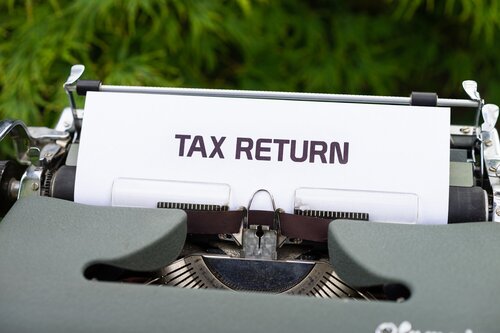The Rivers state government is on the path of setting a precedence in the collection of Value Added Tax (VAT) law in Nigeria that could trigger a domino effect in the current demented federalism if the ruling of a High Court in the oil-rich state is upheld by an Appeal Court.
Timeline:
- On August 10, 2021, a Federal High Court in Port Harcourt restrained FIRS from collecting VAT and personal income tax in Rivers State.
- On August 19, 2021, Governor Nyesom Wike signed Rivers State Value Added Tax Law 2021 into law.
- On September 6, 2021, FIRS lost a case of stay of execution and headed to Appeal Court.
- On September 08, 2021, a leaked document reveals that the Federal Inland Revenue had sent a bill to the National Assembly dated July 1, 20201, asking VAT to be included under the exclusive list and asked for the establishment of the Federal Revenue Court of Nigeria
- On September 8, 2021, Governor Wike vowed to seal offices of FIRS in Rivers if the FG’s agency continues to sabotage the new law in Rivers
- On September 21, 2021, Rivers will start to collect income and VAT from companies and individuals who do business in the oil-rich state
On August 19, 2021, Governor Nyesom Wike signed into law Rivers State Value Added Tax Law 2021 to end the “illegality” of the Federal Inland Revenue Service (FIRS), an agency of the Federal Government which had been in charge of the collection of taxes in the most populous African country.
The power of the Rivers State Revenue Service (RSRS) to collect VAT in the state was delivered by Justice Stephen Pam.
On September 6, 2021, FIRS through its lawyer, Reuben Wanogho, challenged Rivers in court, but lost and subsequently headed to Appeal Court.
Following the victorious ruling on the part of Rivers, another VAT-high generating state in the Southern part of the country, Lagos, commenced the reading of a bill that will empower the commercial city to wrestle the collection of Valued Added Tax from FIRS.
What is VAT?
Value Added Tax is a type of tax that is paid on the sales of goods and services to the final consumers. In some countries, it is known as goods or services tax.
Before the recent litigation, it’s collected by Nigeria’s government and shared among the three tiers of government.
Below are the facts you need to know about the VAT war between FG’s agency (FIRS) and the state government
1) According to Justice Stephen Pam who delivered the judgment in favour of Rivers State government and dismissed an appeal by the FIRS, the FIRS had been collecting VAT illegally for several years.
2) The judgment exposed a loophole in the Nigeria Constitution, which had no provision for the collection of VAT by the federal government.
3) Rivers was able to outsmart the FG by enacting Rivers State Value Added Tax No. 4, 2021. The action of the Rivers State House of Assembly made it a legitimate right of the state to collect VAT.
4) Rivers shall continue to collect the VAT unless FIRS wins subsequent court cases.
5) The judgment shows that there are many states in Nigeria that are parasitic to other revenue-generating states.
Note: VAT is shared among the three tiers of government thus:
- FG: 15%;
- States: 50%;
- LGs: 35%
6) By the new VAT law, Rivers State government becomes the first state in Nigeria to challenge the illegality of VAT by the Federal Government.
7) The new law can be challenged at Tax Appeal Commission and appeal at the State High Court.
8) If the judgment is upheld at the Appeal Court, it means at least 30 states will suffer revenue shortfall and may likely find it difficult to pay salaries (if governors of such states failed to reduce their flamboyant spending and their sickening foreign trips).
List of 5 States That Will Benefit From The VAT War
Nigeria has 36 states, only five make the highest value-added tax contribution to the federation account, according to a figure released by Nigeria’s former Minister of Finance, Mrs. Kemi Adeosun, on August 1, 2017.
In 2017, Mrs. Adeosun, charged state commissioners of finance to think out of the box on how to increase internally generated revenue instead of coming to Abuja every month to take financial handouts from the Federal Government.
| States Where Nigeria VAT Comes From | Contributing Percentage |
| Lagos | 55% |
| FCT | 20% |
| Rivers | 6% |
| Kano | 5% |
| Kaduna | 1% |
| 32 Other states | 13% |
The above table means that 87% of Nigeria’s VAT comes from four states and the Federal Capital Territory (FCT) while only 13% comes from 32 other states.
9) Rivers-based businesses which have been in business for at least 6 months are expected to register with RSRS while new businesses have up to 18 February 2022 to register.
10) From the above analysis, it means states that made more contribution to the Federation Account are the losers in the VAT being collected by the FIRS
Simple Analysis
For instance, if State Y made a payment of N100,000,000,000 to contractors in its state and 7.5 percent (which is the current VAT deduction) is collected by the FIRS on behalf of FG which is shared at the end of the month, it means N7,500,000,000 will be shared by the 36 states of the Federation, FG, and the Local Government Areas.
State Y will only share 50% of N7.5Billion with State B, A, and other states that made ridiculously tiny VAT contributions, meaning 36 states will all share N3,750,000,000.
In the end, State Y that made the lion contribution gets N104,166,666.667 as other states because of the non-existing FG VAT law, Rivers has challenged.
11) Section 9 of the Rivers State Value Added Tax Law 2021 mandates nonresidents to register for the tax if they want to carry out business in Rivers
12) The Hisbah or Sharia Law in most of the Northern States forbids the drink or establishment of an alcoholic brewery in their jurisdiction, yet they share from the monies generated through VAT from other states like Rivers, Lagos, Oyo States that allow the operation of such business.

13) Severally, Nigerians saw Hisbah officials destroy trucks loaded with alcoholic drinks in their domain.
For instance, on November 8, 2020, Kano Hisbah destroys 1,975,000 bottles of beer estimated at N200,000,000, according to a report by the Vanguard Newspaper.
Again, on February 2, 2021, the Sharia Law officials in Bauchi State seized over 260 crates of alcoholic drinks, thereby crippling alcoholic drinks in their jurisdiction.
Some concerned Nigerians are asking:
Why can they reject the monthly allocation they get from such tax gotten from other states?
14) The rate of the tax shall be 7.5% which shall be shared thus: State takes 70%, while 30% goes to the local government areas in the state.
Using the same N100Billion above, Rivers will now get N70,000,000,000 while the remaining 30%, which is N30Billion will be shared among the 23 council areas in the state.
15) The new state VAT law states that monthly remittance and return are due by the 21st of the succeeding month. Technically, companies will begin to remit the tax to RSRS by September 21, 2021
Wrapping Up:
If Rivers State crosses the legal hurdle ahead of it, the Lagos State government will definitely follow suit, meaning it’s going to be a new definition for Nigeria’s controversial and feeding-bottle federalism.
But then, we’re sure that state governments and legal practitioners know this VAT loophole before now, but they all kept quiet.
Some Nigerians are saying the sound of the 2023 election is oozing out clearly, those who have ears should carefully listen.
References:
- thecable.ng/adeosun-half-nigerias-vat-comes-lagos
- premiumtimesng.com/regional/nnorth-east/440057-hisbah-confiscates-260-crates-of-alcoholic-drinks-in-bauchi.html
- Featured Image credit: Markus Winkler of unsplash.com



The sections:
“…find it difficult to pay salaries (if governors of such states failed to reduce their flamboyant spending)…”
and
“…Nigeria’s controversial and feeding-bottle federalism”
made my day!
Thanks for the astute analysis, (and chuckles) keep up the good work!
Thanks, Isaac.